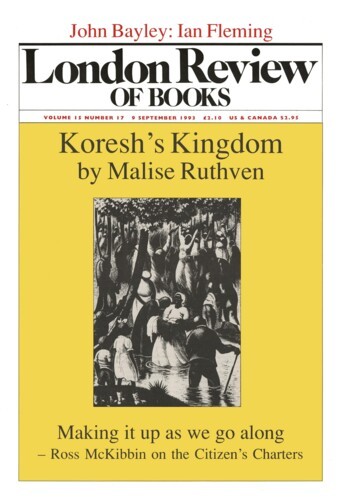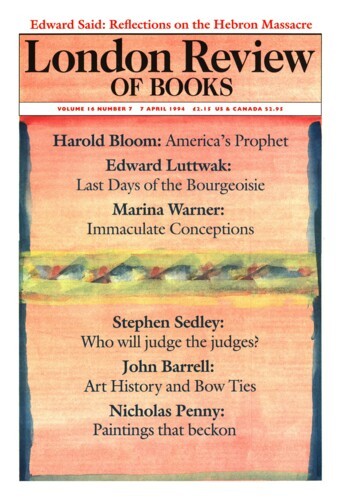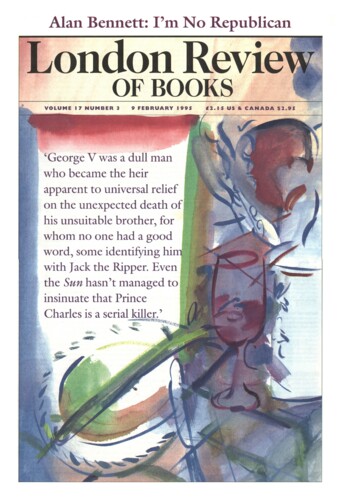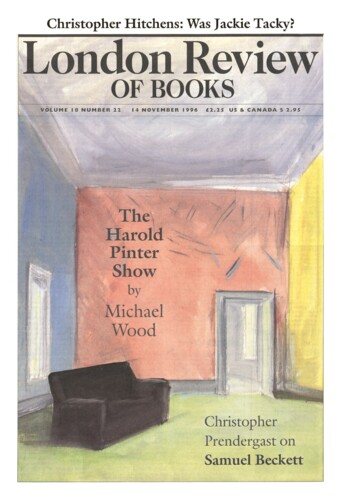The Whole Orang
Paul Smith, 12 March 1992
How pleasant to be Mr Darwin, who wrote such volumes of stuff without the necessity of gainful employment or institutional backing, or the need to budge very often from the old parsonage at Downe to which he withdrew at the age of 33, confidently telling an old servant as he sent the address: ‘this will be my direction for the rest of my life.’ Not the least valuable part of this massive but racy biography (at eight hundred pages a bargain for the price) is its detailed portrait of the independent gentleman scientist in almost the last epoch in which any individual could singlehandedly precipitate a major shift in human thought. Adrian Desmond and James Moore place Darwin above Marx and Freud. It is hard to think of successors to that trinity of lone rangers in an age when research is financed by foundations and carried on by teams and generally mounted on the kind of scale where the capacity of execution seems in danger of outrunning the fertility of conception.





